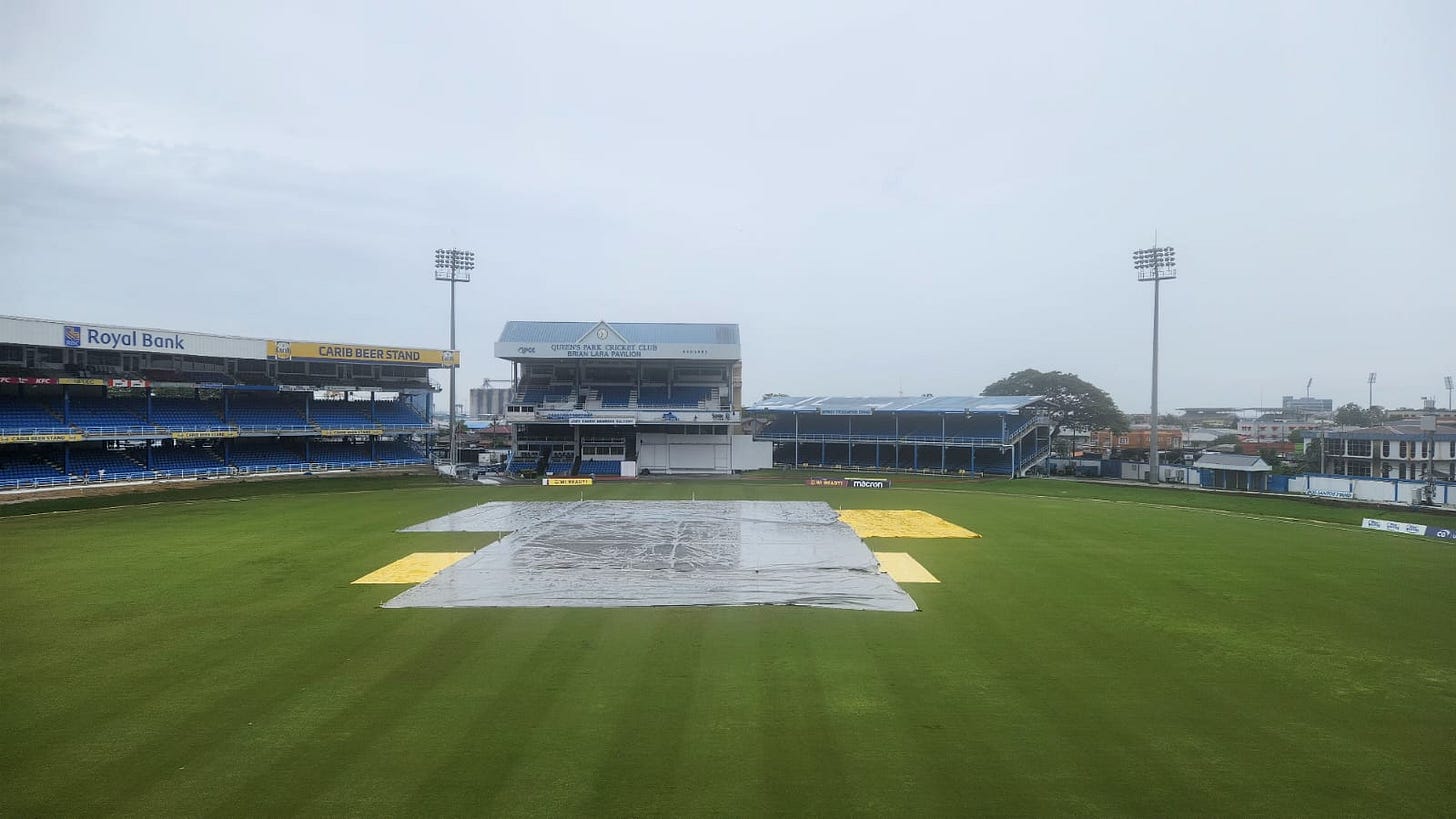South Africa were denied by the rain in the first Test against the West Indies at the Queen’s Park Oval in Port of Spain. They were dominant throughout most of the match and, such as predictions are relevant or not, would probably have won with better weather. It was a gallant effort to force a result which was ultimately thwarted by the persistent rain in Trinidad, end of story. If you enjoy short stories.
Professional athletes who have just completed five days of competition, even if two of them were spent inactive, will understandably not take well to ‘criticism’, but a ‘critique’ is merely an observation of a performance and events, it’s not intrinsically negative. Or shouldn’t be.
Asking post-match questions in a team meeting should be a positive exercise. Bob Woolmer always said that players, and teams, learned the most useful lessons by questioning their performances after victories rather than defeats. ‘What could we have done better?’ is more likely to prompt thought amongst happy players than despondent ones.
Why did South Africa amble to 357 at three runs-per-over for 117 overs in their first innings when the galloped to 173-3 at six runs per over in their second? It is a legitimate question. They packed their batting line-up to the detriment of a fifth bowler and then allowed ‘conditions’ to dictate the pace of play. Slow pitch, slow scoring. You can’t run fast on a beach. That’s the way it is.
Except, they showed that wasn’t the case in the second innings when they ‘needed’ to score quickly to earn the chance of an unlikely victory. Then they doubled their scoring rate. It would be easy to become defensive about the question. Test cricket, after all, has its intrinsic rhythms, and you treat the first innings with the deference it has earned after 145 years.
But times have changed, and they need to. Test cricket isn’t what it was, and never will be again – for South Africa, anyway.
If there is a risk of offending South Africa’s players by questioning their approach, there is no doubt they will be offended by the mention of England’s Test team, its captain Ben Stokes and coach Brendon McCullum. The eyes will roll and brows furrow, to put it mildly.
The facts, figures and stats about the ‘Bazball’ era are one thing. History may recall that, more significant, was the refusal of the new England team to be guided by history. Test openers, for example, leave around 15% of deliveries. Ben Duckett plays at all but 1.2% of the deliveries he receives, and scores off them. For over half a century scoring rates in Pakistan were under three runs per over. When England toured there last year they scored at six runs per over.
South Africa’s players will say that conditions dictated the pace of play. It might be temeritous to suggest that history played just as much a part, but there it is. History played as much a part. I haven’t played a single Test match and will happily acquiesce to the view of any player who has, but I’ve reported or commentated on the best part of 400 of these games and would humbly submit that the conditions in Trinidad were not three-an-over, especially against a modest bowling attack.
It sums up the difficulty that South Africa’s Test team is in, and will remain in forever. It’s like riding a bike. Once you’ve got the hang of it, you can do it forever. Take six months off, however, and you naturally start slowly again. Quick turns and fast corners are taken more slowly for fear of a nasty fall.
Add the reality that most of the South African players are in the infancy of their careers and have insufficient credit in the bank for ‘brave failures’. Nobody is playing Test cricket for South Africa reluctantly, or flippantly. They all want to be there, which counter-intuitively inhibits their most instinctive play. Tristan Stubbs provided a door-crack peep into a possible future with his glorious 68 from 50 balls in the second innings.
The very vast majority of South Africa’s professional cricketers still aspire to play Test cricket, as well as cashing in on the T20 circuit. They want the best of both worlds, don’t we all?
The thing is, regarding Test cricket with a suitable and appropriate reverence is terrific, but playing it in that fashion might just lead to its extinction. Not in England, Australia and India, of course, but certainly in South Africa. The Proteas need to believe they can win, and then win, a lot, to keep their place at the top table. Or any table.






Excellent piece as always Manners. South African and English sides were always inherently conservative. As England has shown that’s history. South Africa have the chance to create some of their own…
A bit premature, this. We're still banking on a Keshav double-hat-trick.